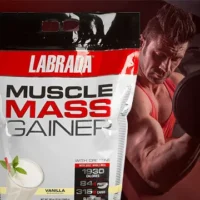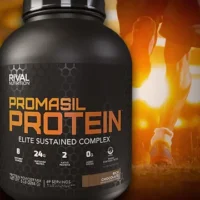Knowledge BaseYou're Questions Answered
How much protein powder is too much?
Determining how much protein powder is “too much” depends on your total daily protein needs, the source of that protein, and how much of it comes from supplements rather than whole foods. Protein powder can be a safe and effective way to meet your daily protein goals—especially when food intake falls short—but excessive reliance on supplements or consumption far beyond your physiological needs may offer little benefit and, in rare cases, pose potential health concerns.
How Much Protein Is Optimal?
Our Protein Calculator provides individualized recommendations based on body weight and goals. For healthy adults, optimal daily protein intakes are typically:
- Sedentary adults: At least 0.54 g per pound of body weight (1.2 g/kg)
- Muscle gain: 0.73–1 g per pound (1.6–2.2 g/kg)
- Weight loss: 0.73–1.1 g per pound (1.6–2.4 g/kg)
- Older adults: Minimum of 0.54 g/lb, with higher intakes for active or ill individuals
- Pregnancy: Up to 0.75–0.8 g/lb in late gestation (1.66–1.77 g/kg)
- Lactation: At least 0.77 g/lb (1.7 g/kg), potentially higher
These values represent *total* daily protein intake—not just from powders. For example, a 150 lb (68 kg) adult aiming for muscle gain might require 110–150 grams of protein per day. If that person eats 90 grams from food, protein powder could help fill the remaining 20–60 grams.
How Much Protein Powder Is Too Much?
There's no official upper limit for protein powder specifically, but excessive protein intake overall—consistently exceeding 1.2 g per pound of body weight (2.6 g/kg)—offers minimal benefit for most people and may crowd out other important nutrients from whole foods1. For most adults, relying on protein powder for more than half of their total daily protein is generally discouraged.
Potential issues with very high protein powder consumption include:
- Nutrient Imbalance: Replacing too many meals with protein shakes may reduce intake of fiber, vitamins, and phytonutrients found in whole foods.
- Digestive Discomfort: Some people experience bloating, gas, or diarrhea from high doses of protein powder, especially if lactose-intolerant or sensitive to certain additives.
- Kidney Stress (in specific populations): While high protein intake is not harmful for healthy kidneys, those with pre-existing kidney conditions should consult a healthcare provider2.
Practical Recommendations
- Limit to 1–2 scoops (20–50g) per day: This range suits most goals and avoids displacing real food sources.
- Distribute protein throughout the day: Aim for 20–40g of protein per meal, spaced every 3–4 hours, to optimize muscle protein synthesis3.
- Prioritize food first: Use protein powder to fill gaps, not as your primary source of nutrition.
Protein powder can safely support your daily protein needs, especially when used to complement—not replace—whole foods. For most people, 1–2 scoops per day is appropriate. Exceeding this amount isn’t inherently dangerous if it keeps your total daily intake within the evidence-based upper range of 0.73–1.1 g per pound of body weight. Use tools like the Protein Calculator to tailor intake to your individual needs and goals.
- Morton, R. W., Murphy, K. T., McKellar, S. R., Schoenfeld, B. J., Henselmans, M., Helms, E., ... & Phillips, S. M. (2018). A systematic review, meta-analysis and meta-regression of the effect of protein supplementation on resistance training-induced gains in muscle mass and strength in healthy adults. British Journal of Sports Medicine, 52(6), 376-384.
- Martin, W. F., Armstrong, L. E., & Rodriguez, N. R. (2005). Dietary protein intake and renal function. Nutrition & Metabolism, 2(1), 25.
- Moore, D. R., Robinson, M. J., Fry, J. L., Tang, J. E., Glover, E. I., Wilkinson, S. B., ... & Phillips, S. M. (2009). Ingested protein dose response of muscle and albumin protein synthesis after resistance exercise in young men. The American Journal of Clinical Nutrition, 89(1), 161-168.
Related Questions
Protein vs Protein

Your Answer
We are a participant in the Amazon Services LLC Associates Program, an affiliate advertising program designed to provide a means for us to earn fees by linking to Amazon.com and affiliated sites.



